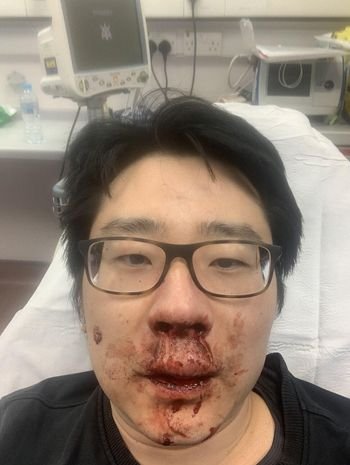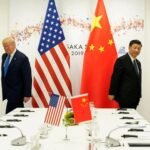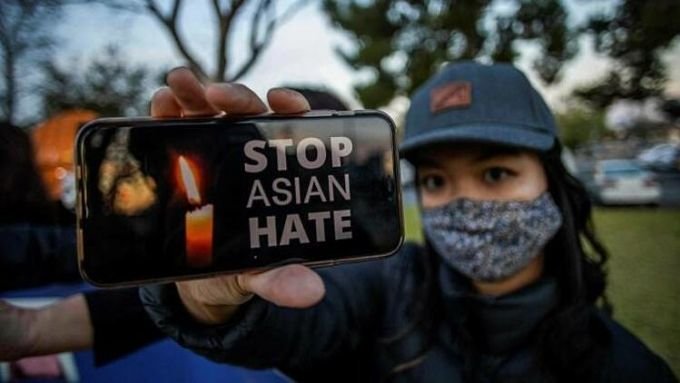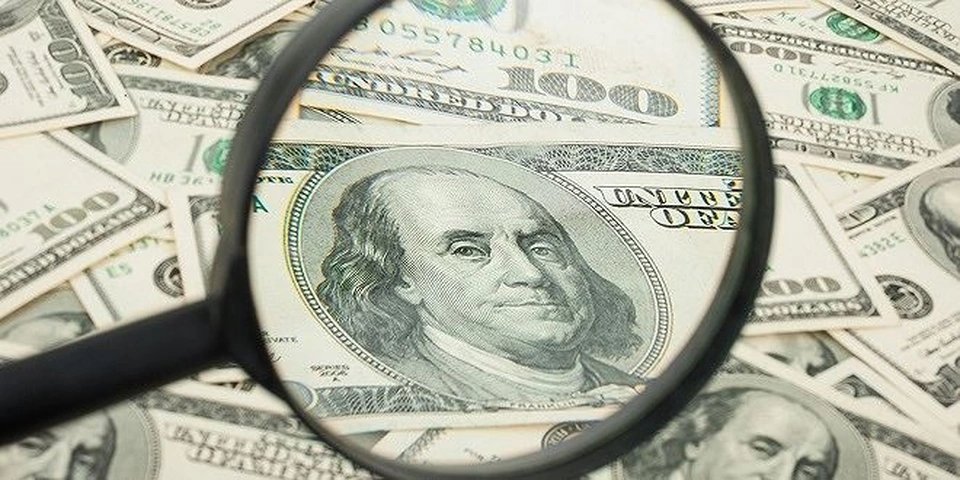At a coffee shop in Naples, Florida, many customers left when an Asian customer sat down.
A girl holds up a phone with the words `stop hating Asians` during a protest in California on March 18.
Last year, the US recorded 3,800 acts of hate and sometimes violence against Asian Americans.
However, the incident has made the Asian American community even more worried as the number of attacks against them has increased sharply in recent months.
As the pandemic spread from Wuhan to Europe and then to the US, Trump repeatedly referred to it with nicknames such as `Wuhan virus`, `Chinese epidemic` and `kung flu` (a play on the word kung fu).
`I never want to hear any more racist shit about this virus from any elected official. They are complicit,` actor and activist George Takei wrote midweek.
Russell Jeung, professor of Asian American studies at the University of San Francisco, assessed that Trump’s words `racialized the virus with serious consequences.`
According to the Center for the Study of Hate and Extremism at California State University, San Bernardino, hate crimes against Asian Americans increased 149% in 2020 compared to the previous year, while hate crimes against Asian Americans
In New York City, police recorded just one anti-Asian hate crime in 2019. That number increased to 28 last year.
In a speech last week marking one year of the Covid-19 pandemic hitting the US, President Joe Biden admitted that acts of violence against Asian Americans were `wrong, un-American and un-American`.
A series of American politicians and the country’s most powerful executives such as the heads of IBM and JPMorgan Chase have criticized rising violence against Asian Americans.
Elizabeth OuYang, a law professor at New York University, sees similarities between the current situation of Asians and discrimination against Muslims in America after the September 11 terrorist attacks.
When Homeland Security Secretary Alejandro Mayorkas told lawmakers that extremism was the greatest domestic threat, Vivien Tsou, director of the Asian Pacific American Women’s Forum, argued that
`Even though the focus is on anti-Asian hate, it all stems from a white supremacist perspective and anyone can become a ‘scapegoat’ at any time,` Tsou said.
Even before the pandemic, OuYang felt anti-Asian sentiment rising as Trump emphasized his anti-immigrant stance.
She was peeling corn near two older women of Asian descent when a middle-aged white man approached them and asked them to `speak English.`
Not only in the US, this problem also appears in Europe.

Lecturer Peng Wang suffered a bloody nose after the assault in Southampton, England on February 23.
Wang shouted back at the group of young men, who drove away but then returned to attack him, leaving Wang with a bloody nose and bruises on his face and arms.
The number of racial crimes against people of East Asian descent in the UK has soared in the past year.
As diplomatic relations between Beijing and London deteriorate over national security laws in Hong Kong and other issues, many Chinese in Britain worry they could be targeted.
`Racism has always existed in the UK. But what has happened in the last 12-15 months – the rhetoric of some governments and the stress of many people in the UK having lost their jobs or their children being unable to
In America, many people of Asian descent are looking for ways to defend themselves.
Gong said his gun sales have doubled during the pandemic and about half are from Asian customers.
Other gun stores around the country also welcomed more Asian customers.
Tim Hensley, manager of Towers Armory gun store in Oregon, Ohio, said they see about five or six Asian customers a day, compared to two or three a month before the pandemic.
He said first-time gun buyers often practice shooting very seriously.










